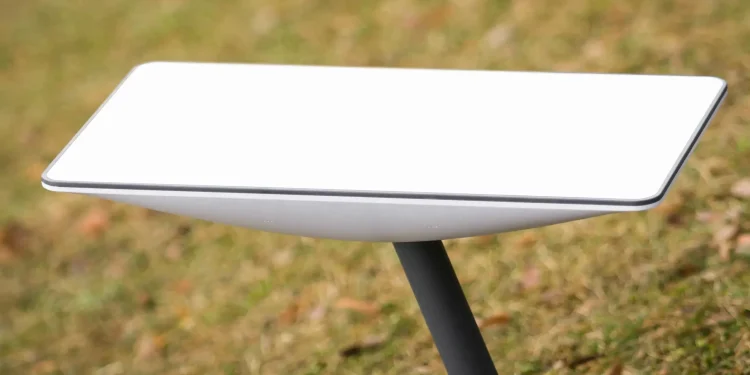Satellite internet provider, Starlink, has unveiled the ‘Starlink Mini Kit’ which will cost KSh 27,000 (US$30.87) and serve a maximum speed of 100mbps.
- Starlink’s original kit costs KSh 45,000, and since the company’s entry into Kenya on July last year, the price has been a barrier to rapid uptake.
- The mini kit was introduced as promised by the company’s CEO, Elon Musk, who said on June this year that the product would be available in Kenya before the year ends.
- The decision comes three days after Safaricom ramped up its fibre internet speeds to match up to the frenzy that Starlink has received over the last three months.
Safaricom upgraded its speeds as opposed to reducing prices. Options such as the 10mbps package, which costs KSh 3,000, were increased to speeds of 15mbps. The 100mbps package was ramped up five times to 500mbps, retaining the price of KSh 12,500.
The Starlink Mini Kit is set to supplement recent efforts by the satellite internet provider to cheapen their product. In August, Starlink introduced a rental plan that would allow prospective users to acquire kits for US$15 every month.
At KSh 6,500 every month, Starlink users enjoy internet speeds up to 200mbps. The company also launched a 50 GB package for KSh 1,300 and a Residential Lite Package for KSh 4,000. All these efforts have seen a rising acquisition of Starlink kits and it is likely that when the year ends, subscription to the internet service would double from its current figure which is about 4,000.
A number of educational institutions, business establishments, and even county governments have reportedly installed Starlink – joining the fray of enthusiasts who perceive traditional internet providers as unnecessarily expensive and manipulable in times of national crises.
It was revealed last month that Safaricom asked the regulator to leash Starlink’s operations under the claim that the satellite service would flout the sector’s standards. Safaricom, in that letter to the Communications Authority, stated that it would have been preferable if Starlink partnered with an indigenous company to scale up its services.
African Expansion
Starlink has not had an easy ride with regulators in the continent, with many of them issuing tough conditions for license approvals. Recently, Botswana and Zimbabwe sorted out their deadlock with the satellite internet provider as they eventually approved them.
Currently, Starlink is engaged in talks with South African and Angolan regulators to finalize license approvals in those countries.




